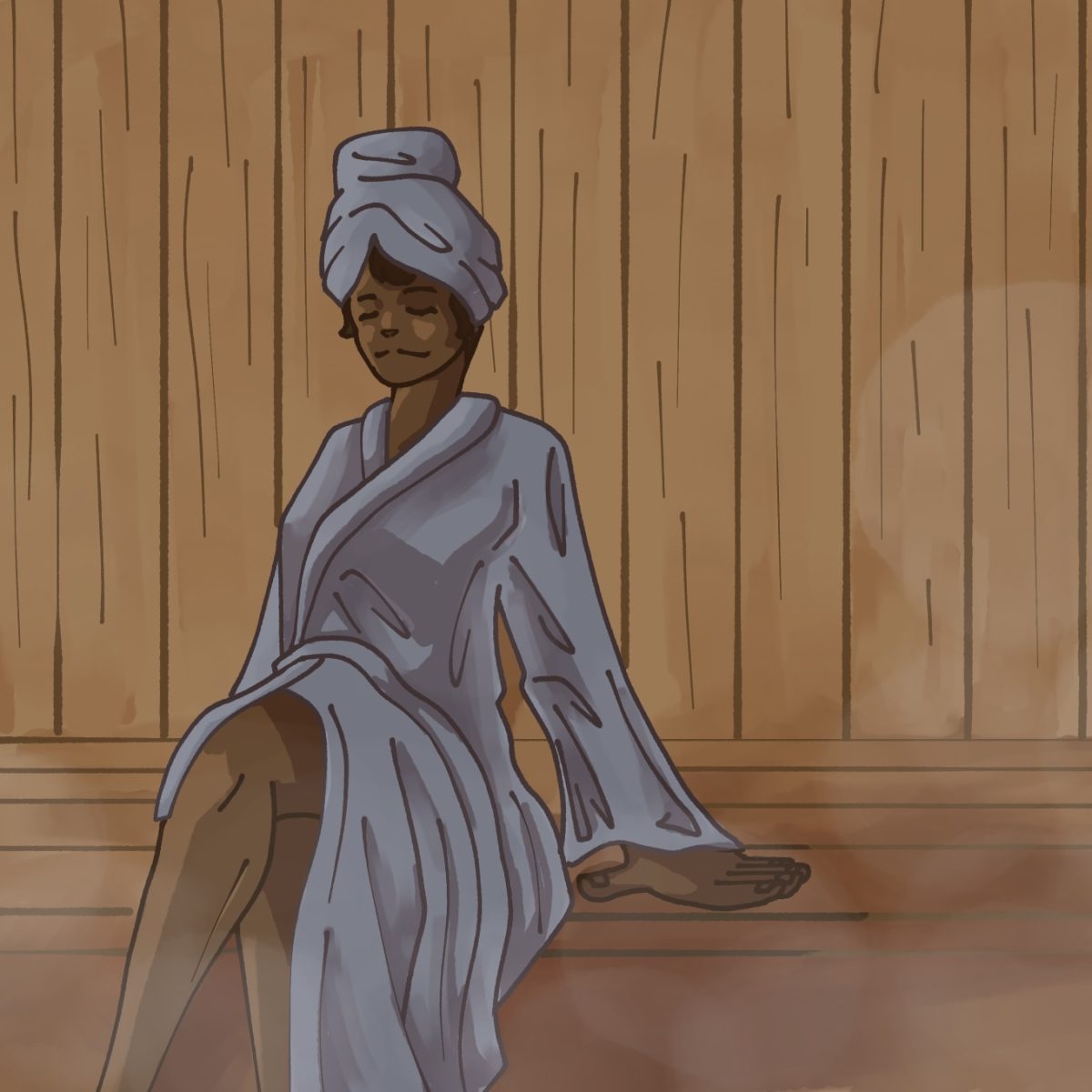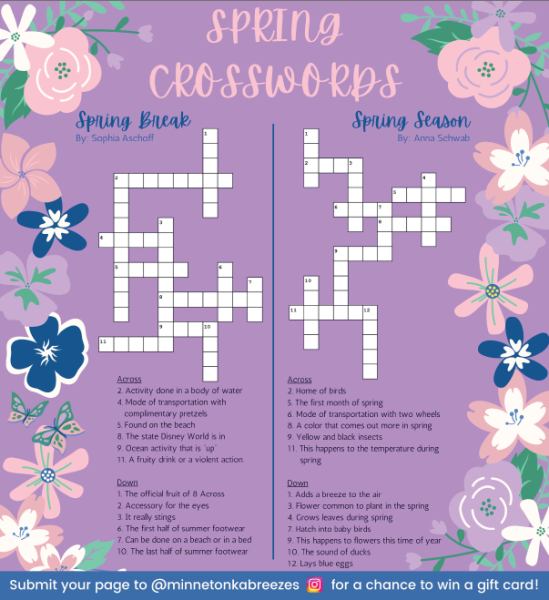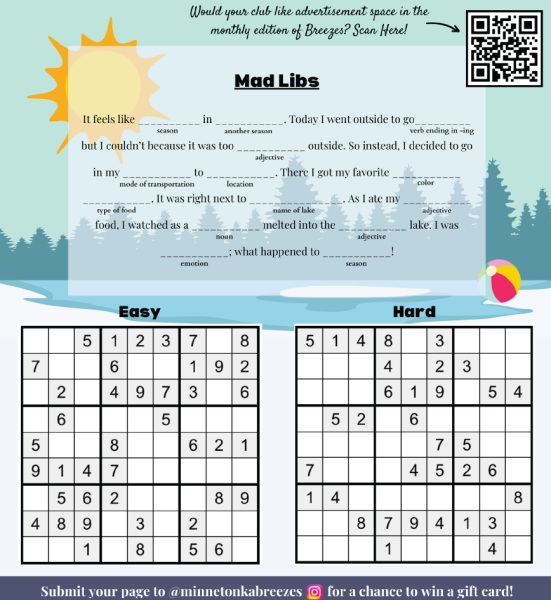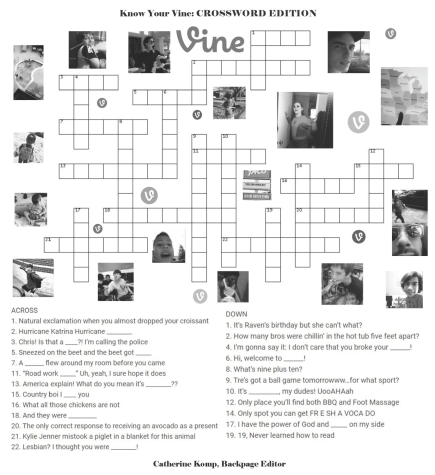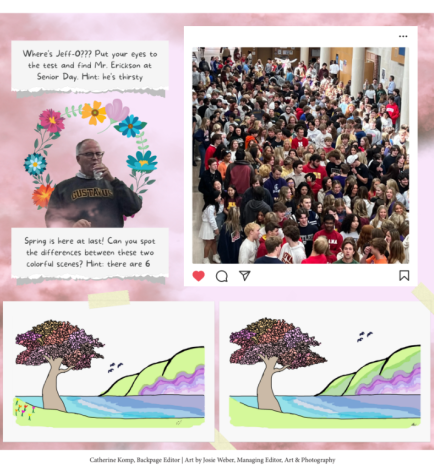Let’s Talk About Steps to Take to Love Life a Little More

Photo Courtesy: Avivo
February 16, 2018
Life can be tough; we’ve all experienced something that we didn’t think we could handle or that forced us to make changes we were never expecting. As teenagers–especially at such a high-pressure school as Minnetonka–we are overworked, fatigued, and stressed to the breaking point. It can be overwhelming, and stress can potentially lead to anxiety disorders, acne, stomach aches, depression, headaches and increased agitation, among many other things.
Furthermore, when we experience stress and everyday things that come with being high schoolers, life can start looking dreary. I think as teens, we assume the future will be better than our lives now, once we get into the ‘real world.’ We need to understand that life is right now, though. So, we should enjoy it.
As someone who is currently experiencing many of the side effects of stress, I thought February and Heart Week makes this an especially good time to address this topic. February has an established connotation of love. Most associate February with romantic love, but there’s more than that: there’s familial, friendly, and self-love. Extremely overlooked, though, is love towards life.
Over the last few months, I’ve concentrated on building a better relationship with life. It wasn’t a journey of the soul or anything near it, but I learned a lot. So, I put together a list of just a few things that might be able to improve your perspective on life that I’ve found to be helpful to consider.
Be more assertive about your needs and wants
This is about striking a good balance. We all have needs and wants, and it’s important to communicate them. It can be awkward or uncomfortable to ask for something you want but don’t need, but it is important to give yourself leeway to ask.
On the other hand, there is such a thing as being too assertive. Don’t be selfish or inconsiderate of others.
Do something out of the ordinary for yourself
This one is pretty self-explanatory. Doing something new, even if it’s something minor can be a good way to diverge from an all too familiar routine.
For instance, do an art project for fun if you mostly do sports. If you consider yourself more artsy, try a new workout routine. Read a book, go on a road trip up North, spend a day baking–the possibilities are endless.
Spend time alone
This doesn’t mean be a loner or stop hanging out with your friends. Socializing is super important and also super fun, so be sure to do that, but balance it with spending time alone.
Spending time alone is a way to gather your thoughts and reflect. You have to spend a lifetime with yourself, so why not give yourself some quality time?
Do things you won’t get graded on, be able to put on college applications, or use to your favor besides just the act of doing it. Get creative.
American culture focuses a lot on being productive and fast-paced. We tend to believe doing something ‘frivolous’ that doesn’t benefit us in a specific way is just silly.
But, it’s not (gasp!). Humans need to do things just for the pleasure of doing them. We need to work with our hands and get creative. We need to just do things for ourselves.
This may involve arts and crafts or reading a book just for kicks and giggles. It may be writing a story or playing frisbee with your dog. It can be anything. Just do something you might have rejected before because you thought it wouldn’t have been beneficial.
Recognize that your path is your own. Others’ opinions is based on their own experiences in their life, not yours.
I recently went through a period of partial hospitalization for mental health, and a common discussion topic was the pressure of living up to a certain path in life; graduating high school and then college, getting a good job, getting married, and buying a house and car. This path isn’t wrong, but as a teenager, it can feel like this is what the world expects from us, which can be suffocating and overwhelming. Much of these expectations come from a school setting.
Something one of our therapists said about this topic has really stuck with me: every adult tells adolescents what life is about based on their own experience. That says nothing about you. Furthermore, in a setting such as school (including MHS), all the adults working there have something in common for them to end up there. Many of our teachers and faculty might be similar types of people. So, of course we might hear the same things over and over from them about how life should go. We need to recognize that this is one opinion about one type of person.
Everyone is an individual. Don’t let someone else’s path affect your view of your own without your consent.


